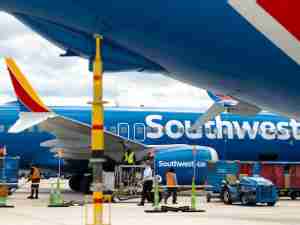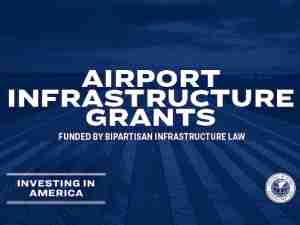India Says IndiGo Keen to Buy Stake in Debt-Laden Airline (1)
By: | Jun 29 2017 at 07:20 AM | Air Cargo
India’s plan to sell a stake in the national carrier just got a fillip a day after the government decided to sell Air India Ltd., with the nation’s biggest airline expressing an interest to buy the state airline.
IndiGo is keen to buy the flag carrier, Civil Aviation Minister Ashok Gajapathi Raju said in comments relayed by an aide Thursday.
Shares of the budget airline, which declined to comment citing a silent period before earnings, dropped as much as 3.8 percent in Mumbai on Thursday, the biggest intraday loss in more than a month. A local television channel reported SpiceJet Ltd., IndiGo’s smaller rival, was also interested, which the government denied. SpiceJet shares fell on the report before rebounding.
“Given IndiGo’s unprecedented expansion plans and the fierce competitive environment in a structurally challenged industry, bidding for Air India will be a strategic mistake,” Kapil Kaul, South Asia CEO at CAPA Centre for Aviation, said in an email. “However, if a new entity is created for Air India’s bid which potentially partners with a foreign airline and is legally and operationally separate from IndiGo, it will be a different case.”
A group led by India’s finance minister will decide on the amount of stake to be sold and Air India’s debt, Finance Minister Arun Jaitley told reporters in New Delhi Wednesday. A government panel had recommended privatizing the airline by possibly asking the buyer to absorb more than $3 billion of loans linked to aircraft purchases, a person with direct knowledge of the matter told Bloomberg earlier this month.
Debt Write-Off
While any interest from IndiGo may be good news for the government, Air India’s allure will depend on India’s ability to write off nearly half of the $8 billion debt that’s not backed by assets. Unprofitable for a decade, the decision to privatize the airline underscores Prime Minister Narendra Modi’s will to risk a potentially unpopular decision at a time when many of the nation’s state-run lenders have been seeking capital injection from taxpayer funds amid mounting bad loans.
Click here to read about the good, bad and ugly of Air India in charts
This isn’t the first time India is attempting to sell the airline. In 2000, the Tata Group had teamed up with Singapore Airlines Ltd. to bid for a stake when the then-government headed by Atal Bihari Vajpayee sought to sell as much as 60 percent of the carrier. Fierce political opposition scuttled the plan.
Subsequent governments have shied away from a sale even as its share in the local market plummeted to 12.9 percent from 35 percent a decade back, placing it joint-third along with SpiceJet Ltd. The company, saddled with a debt burden of about 500 billion rupees ($7.8 billion), made an operating profit of about 1 billion rupees in the year through March 2016, aided by a drop in oil prices. It still posted a net loss of 38.4 billion rupees, according to the government.
The government panel, which will include the aviation minister, will decide on the unsustainable debt, hiving off certain assets to a shell company and privatizing three profitable units, government spokesman Frank Noronha said separately in a Twitter post Wednesday. Workers unions said they will oppose the move.
A joint forum of Air India employees said it is against the decision and will seek a meeting with Modi to discuss it. If the government is willing to write off the airline’s debt, it should do so for the current management as well, said J. B. Kadian, general secretary of Air Corporation Employees Union, which represents about a third of the carrier’s 27,000 workers.
Options Suggested
Niti Aayog, the government’s top policy planning body, has suggested options for the future of Air India earlier this year, including hiving off real estate assets before privatizing the carrier and writing off half of the debts accumulated by the airlines.
IndiGo, operated by InterGlobe Aviation Ltd., may face rival bidders too. Tata Sons Ltd., the conglomerate that had expressed interest in Air India back in 2000, may again be drawn to a potential sale, some local media have reported. N. Chandrasekaran, the chairman of the group, led informal talks with the government to buy 51 percent of the airline, again partnering with Singapore Airlines, ET Now television channel said this month.
The carrier, which is known for its Maharajah brand icon, traces its roots to Tata Airlines, founded in the 1930s by the then-patriarch of Tata Group, J.R.D. Tata. A member of the global Star Alliance, it now has a fleet of about 154, according to government data.









